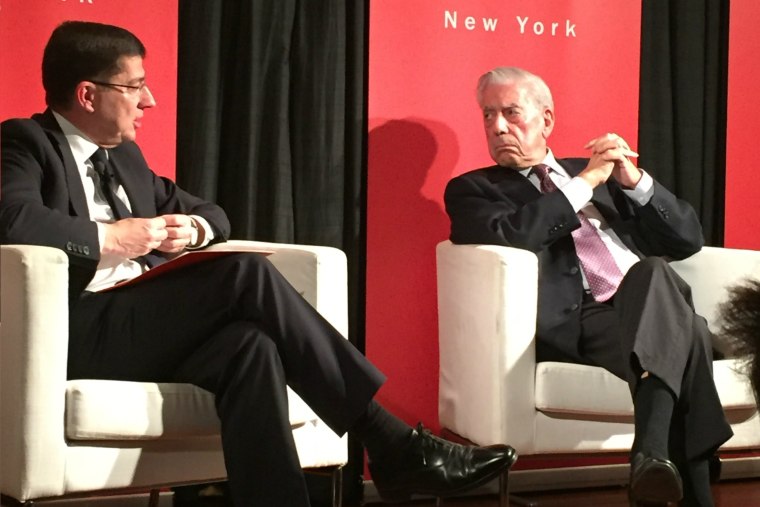NEW YORK, NY -- Republican presidential candidate Donald Trump is advocating mass deportation for immigrants who lack legal status. Marco Rubio, Ted Cruz and Jeb Bush seek to roll back President Obama’s policy on Cuba with a get-tough approach. But spurning the contributions of immigrants or resisting closer ties between the U.S. and Latin American countries is not the way forward, argued a Nobel Laureate from Perú and two former presidents from Mexico and Chile at a recent panel in New York City.
The Latin American leaders urged the U.S. to embrace new policies to focus on political and economic integration.
“I think it would be a suicide for the Republican Party if it elects Donald Trump as a [presidential] candidate,” said acclaimed Peruvian writer and Nobel Laureate Mario Vargas Llosa on Monday, in a forum about U.S. and Latin American foreign policy. He was joined by former Mexican president Felipe Calderón and former Chilean president Sebastián Piñera at the Spanish cultural center Instituto Cervantes in New York.
Vargas Llosa recently signed a joint statement with 66 Latino writers, artists, scientists and filmmakers denouncing Trump’s derogatory comments about Mexico and immigrants. And before the GOP presidential candidate caused controversy even more by invoking President Eisenhower’s 1950s deportation program named "Operation Wetback" during Tuesday’s debate, the former President of Mexico urged Americans on Monday to find a more pragmatic solution.

“I think it’s important to point out today [that] the migrant worker does not come to the United States at the beginning to get American citizenship,” said Calderón during the forum, defending new immigration policies for temporary workers and students. “Many of the 6.5 million Mexicans who remain undocumented here [the United States] stay because if they go back they lose the opportunity to work here.”
Similarly, the former President of Chile supported the success of open border policies by praising the European Union as a positive democratic model. “Europe after two world wars, of tens of millions dead… managed to abandon the logic of the Siegfried and Maginot lines [referring to German and French defensive walls, tunnels and barracks built during and after World War I] and replaced it with the logic of Maastricht [the initial treaty that created the European Union]… which is the logic of integration…,” said Piñera.
Panelists at the forum explained that this open border perspective is rooted in the values of modern democracies, compelling countries today to rethink foreign policy strategies like the Cuba embargo.
“The embargo clearly has not succeeded,” said Vargas Llosa, who ran for office in Peru as a center-right candidate and who supports the opposition to Cuba´s government. “It was an embargo by the United States that the democratic world did not participate in and Cuba could continue getting what it needed.”
The panel also reflected a shift in what constitutes real challenges to countries' prosperity and stability.
"I think that the greatest threat to democracy today does not come from revolutionary utopia or military coups," said Vargas Llosa. Instead, the Nobel Laureate explained that these two threats are somewhat neutralized, but what is increasingly a serious issue is the widespread corruption rooted in the drug trafficking industry, which he sees as a "destructive agent for [democratic] institutions."
The discussion pointed to a larger question: As the U.S. and Latin America come together in the next few years to work on policies regarding immigration, Cuba and drug trafficking, the issue is whether the emphasis will be on strict borders and walls or solutions for greater integration.